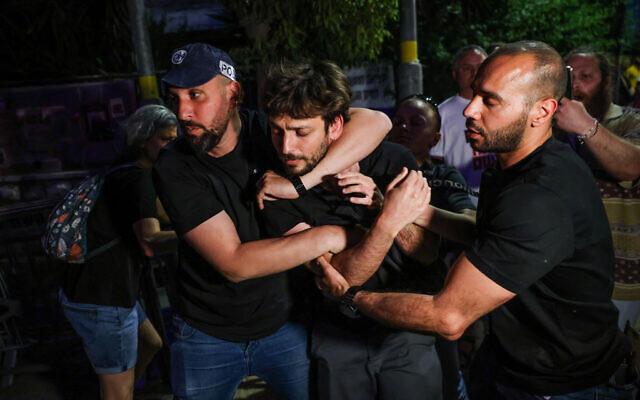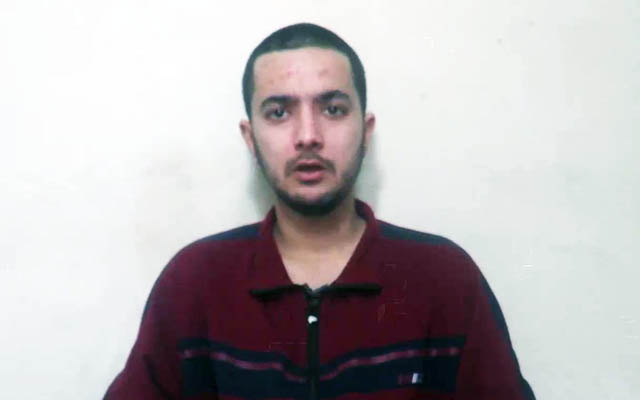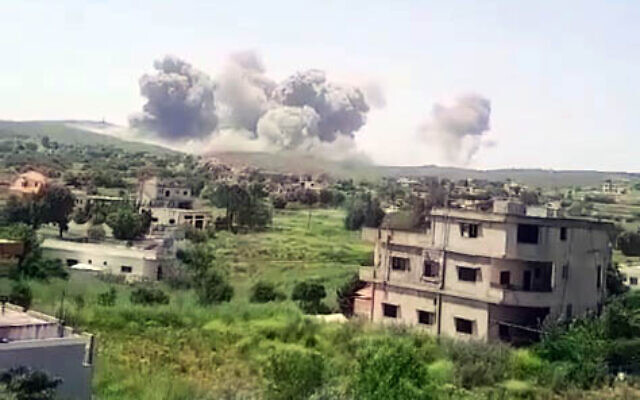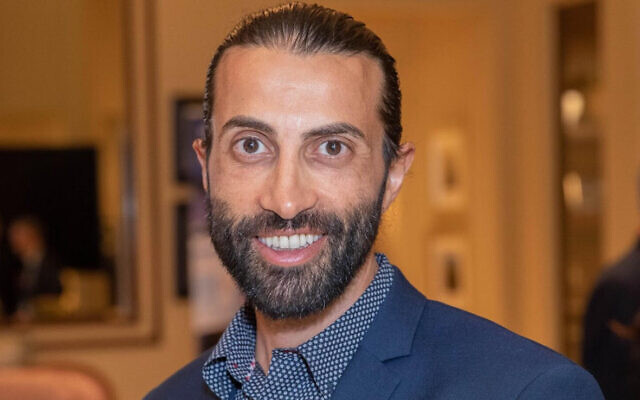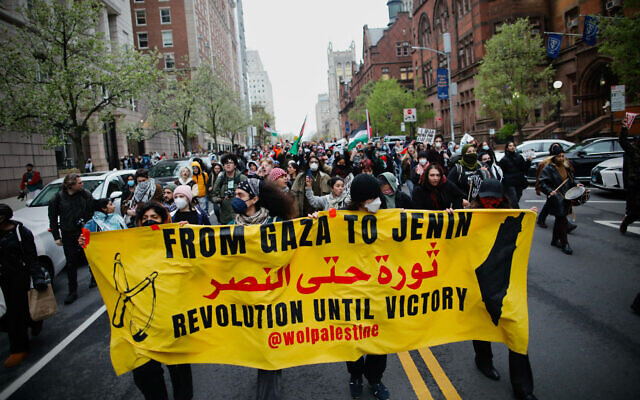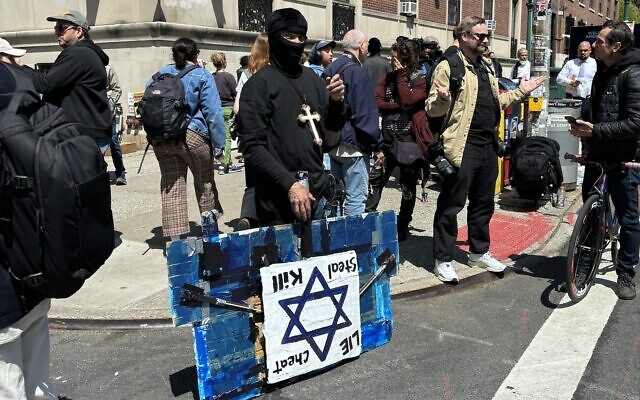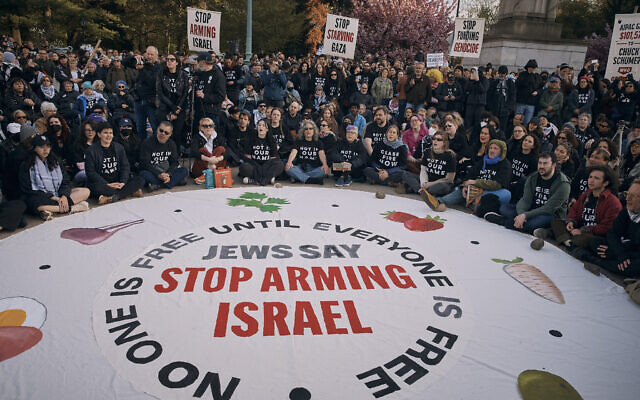Far-right MK Ben Gvir tours tense Temple Mount with police OK
Final approval was given after morning assessment, despite concerns firebrand lawmaker could spark fresh violence as Israel contends with terror spurt ahead of Ramadan
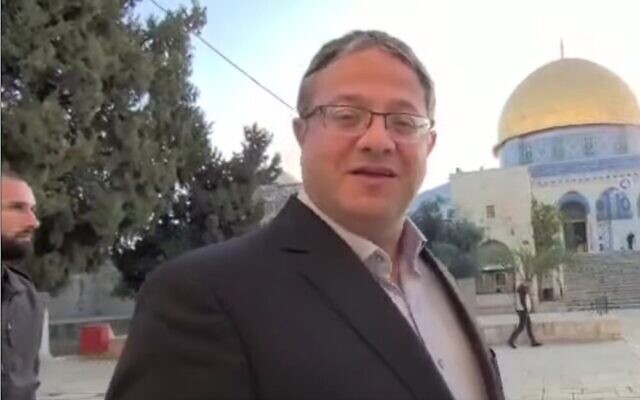
Far-right lawmaker Itamar Ben Gvir visited the Temple Mount early Thursday morning after receiving approval from police to visit the Jerusalem holy site. News early this week of the planned visit by the firebrand MK had sparked concerns it could significantly raise already heightened tensions and spark fresh violence.
Ben Gvir entered the compound escorted by police, and walked around for about a quarter of an hour.
“The message of my visit is simple: I don’t surrender and I don’t fold,” he said during his walkabout. “The State of Israel must not give in to those terrorists who want to murder us all.”
He said he had been receiving death threats from Hamas and its spokesman ahead of the visit, “and I advise [the spokesman] to shut up. I don’t know why the Israeli government doesn’t eliminate him in a targeted strike. He’s a terrorist.”
He called the Waqf Muslim authorities who administer the religious sites on the mount “terrorists,” and said that “whoever controls the Temple Mount controls the Land of Israel. The enemy understands this too.”
Police approval for the visit to the flashpoint holy site came following a situational assessment Thursday morning.
The police okay was met with condemnation from some other politicians, who have sought to both address security concerns and calm tensions as the Muslim holy month of Ramadan approaches, amid fears that Jewish-Arab violence seen in May 2021 could rear its head again.
Ram Ben Barak, the head of the Knesset Foreign Affairs and Defense Committee, said the police had erred in allowing Ben Gvir’s visit to go ahead. “Ben Gvir and Hamas have a common interest: To stir up trouble,” said Ben Barak, a Yesh Atid MK and former deputy head of the Mossad. “As far as Ben Gvir is concerned, if the visit passes without incident, it will be a missed opportunity.”
In a statement, the opposition Joint List of Arab parties accused police of being as much a problem as “the pyromaniac Ben Gvir.”
“The government will carry responsibility for any escalation of violence that comes as a result of Ben Gvir’s provocations,” it said, accusing both the MK and police of sparking the violence in May, which began when Hamas started firing rockets into Israel in response to the eviction of Palestinian families from homes in Jerusalem.
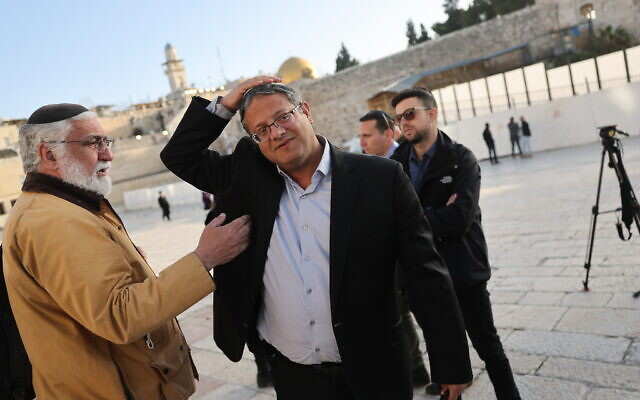
Israel has been rocked by a series of deadly terror attacks since last week, leaving 11 dead and raising fears of a prolonged wave of Palestinian violence. On Tuesday, five people were killed by a Palestinian gunman who opened fire at passersby in Bnei Brak. That came after attacks last week and on Sunday in Beersheba and Hadera by Islamic State terror group supporters that left six dead.
Follow up: Israeli right-wing Kenesset member Ben Gvir is currently in Al Aqsa Mosque Yard along with intensive ISF presence pic.twitter.com/lIwcxtTpVF
— Local Focus – Security Alerts (@LocalFocus1) March 31, 2022
Despite the violence Ben Gvir, a member of the ultra-hardline Religious Zionism party, had vowed to visit the Temple Mount, Judaism’s holiest site, to mark the start of the Hebrew month. He had warned that blocking him from the compund would “send a message of capitulation to terrorism and only further stoke the flames.”
But many see Ben Gvir as a provocateur, whose previous visits to sensitive sites, including East Jerusalem Sheikh Jarrah neighborhood last spring, have served to ratchet up tensions and fighting.
A visit to the Temple Mount compound in September 2000 by then opposition leader Ariel Sharon, accompanied by a large contingent of security officers, was followed days later by the outbreak of the Second Intifada onslaught of Palestinian terrorism.
The Temple Mount is Judaism’s holiest site and is holy to Muslims as the site of Al-Aqsa Mosque, making the area a tinderbox that has erupted into conflict in the past. Jews are not allowed to pray there, but visits are approved with limited conditions.
Jerusalem District Police Commander Doron Turgeman said Wednesday that while Jewish visits to the Temple Mount during Ramadan will still be allowed, they will be limited.
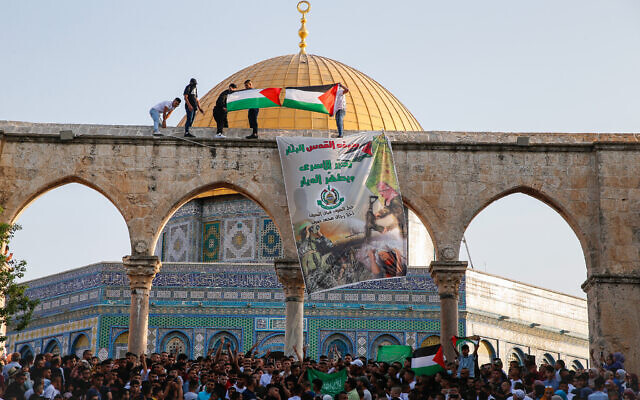
“Our goal is to maintain a proper order of life during the holidays for all religions, to allow freedom of worship for all religions, while maintaining the security of the citizens in the area,” he said following a meeting with IDF, police, Shin Bet and municipal officials.
Kan reported that police also issued an order banning members of the Hamas terror group who have previously served jail time for activities with the group from the Old City and other areas of the capital.
Jordan, which claims custodianship of Muslim sites in the Old City, has pressed Israel to not restrict Muslim access to the shrine, as officials from Washington and Jerusalem have courted the kingdom to help calm tensions around Ramadan..
In meetings in Amman with Defense Minister Benny Gantz and President Isaac Herzog this week, Jordan’s King Abdullah “stressed that maintaining the comprehensive calm requires respecting the right of Muslims to perform their religious rites in the blessed Al-Aqsa Mosque,” according to the palace.



